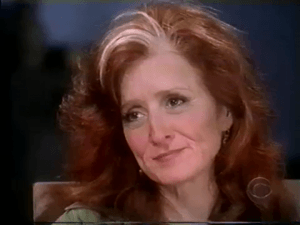The Singer Joins Taj Mahal in the Round Saturday Night at the Santa Barbara Bowl

September 6, 2009
When Bonnie Raitt and Taj Mahal play the Santa Barbara Bowl this weekend as part of their BonTaj Roulet tour, they will bring an incomparable level of musical and historical experience to the stage, having between them commanded the attention of all kinds of music lovers worldwide for several decades. Mahal is the most musically extroverted of the great blues artists-as prominent, influential, and popular as B.B. King or Muddy Waters, but with an idiosyncratic set of interests, including world music, farming, and social justice.
Meanwhile Raitt represents a unique fusion of some of the main strands of American progressive culture since the 1960s. Her music draws on roots and blues traditions, but she has been a tireless proponent of the work of young and less recognized songwriters. She’s had hit records and critical favorites, and she’s been on the forefront of musical activism since her student days during the Vietnam War era. I recently spoke to Raitt in anticipation of her concert with Mahal at the Santa Barbara Bowl on Saturday, September 12.

I am excited about this double concert format, with you and Taj Mahal. Do you feel that way, too? Oh yes, I am thrilled at the combo, and about returning to Santa Barbara. I know the venue very well. They told me that I have played [the Bowl] 26 times, which even for me is a lot. Sometimes it gets into the stratosphere with places like Red Rocks, but I guess that I have to accept that I have been doing this a long time now. Not as long as Taj though.
It shows they have good taste at the Bowl. Your early records were important to me and to many people I knew growing up because they wove together our feelings about politics and our feeling for roots music, particularly the blues. That means a lot, because it’s that exact part of what I do that means the most to me, too.
How did your life as an activist come about? I was raised in Los Angeles in a Quaker family. My folks converted during the Second World War. My own desire to work with the AFSC [American Friends Service Committee] came out of that connection. Growing up, I idolized Bob Dylan and Joan Baez, and that made me want to do music, but I also thought I should change the world. So very early on, the idea of marrying music and activism, and exposure to that whole period of Sing Out! Magazine and Pete Seeger-that was really what made me pick up the guitar. I loved the power of music to bring people together to have a good time, but I also knew that you could use music to raise money and get press attention for a good cause.
I know you were also involved in the action against the Seabrook Nuclear Power Plant. That’s right, 1976, the Clamshell Alliance. Absolutely.
I think people forget that as far as activism goes, “the ‘60s” didn’t just end. The ‘70s were full of radical protests. That’s right. The ‘70s were when a lot of the real changes actually happened. What started in the ‘60s was out in the streets in the ‘70s.
You have a rare ability to make big connections, and you clearly value being part of something that’s bigger than yourself. How did that come about? I think everyone admires these figures like Gandhi, or Martin Luther King, and Nelson Mandela. They will always inspire because these people put themselves out there, and they risked everything for something that at the time seemed like a pipe dream, impossible. And they didn’t do it for a payback. It’s not like Mohammed or Jesus or the Buddha believed “do for others so they’ll do for you.” I think all of us secretly-or not so secretly-admire that commitment. Living for others in the real sense is something [that’s] ingrained. It’s about being part of something bigger.
Is it important to you to give new music exposure to a wider audience? Every songwriter who I have covered, they all have jewels of songs that have never really been heard.
The best thing about being a critic and reviewing music is that you can offer people recognition. It’s a great feeling to let someone know that they are good. That’s exactly what I feel when I play a song by a great songwriter. I am so happy to give these people their due. When I get a letter from someone and they are excited about an artist whose song I covered, that’s great, and when I hear from one of the artists that they have gotten a gig, that’s even better.
I should let you go, but I have enjoyed talking with you at length, I hope you didn’t mind. You know I have been asked, on the radio, if Melissa Etheridge has ever hit on me. Talk about dead air on my end of the phone. [Laughs.] Well, that’s just on one of those zoo radio shows where they do that kind of humor. I’m usually more judicious in who I talk to.
Bonnie Raitt and Taj Mahal bring the BonTaj Roulet tour to the Santa Barbara Bowl on Saturday, September 12, at 7 p.m. For tickets and information, call 962-7411 or visit sbbowl.com.
Source: © Copyright Santa Barbara Independent






 Visitors Today : 67
Visitors Today : 67 Now Online : 0
Now Online : 0
















































































































